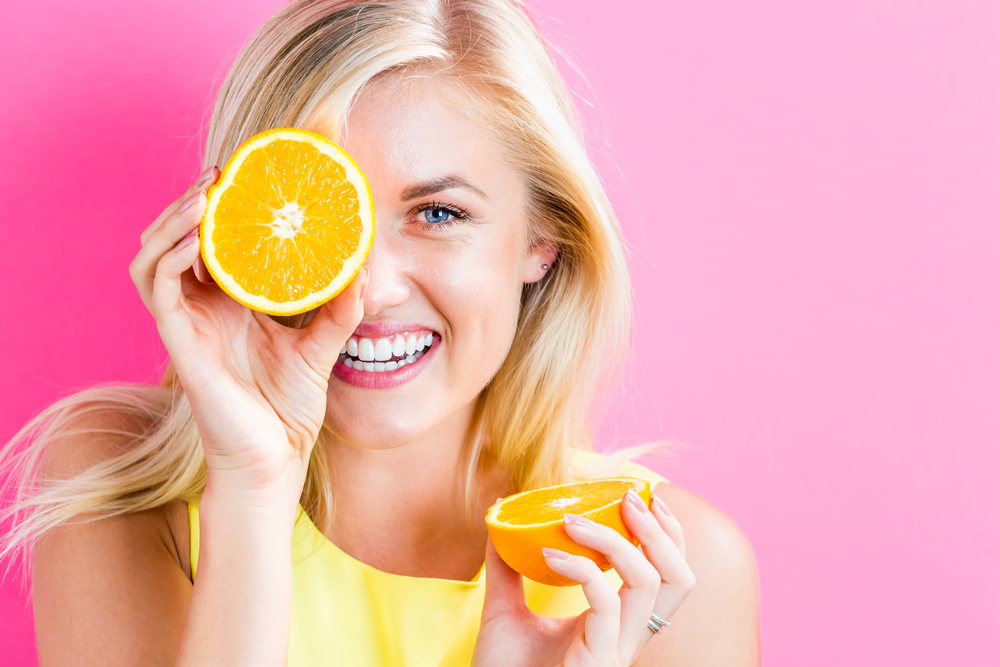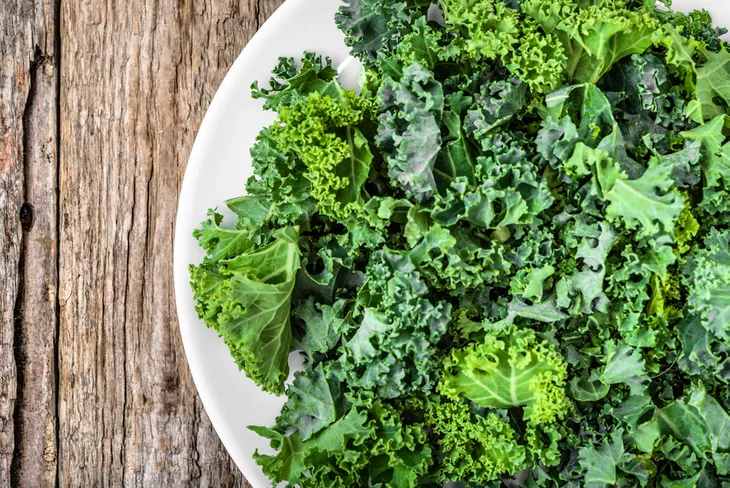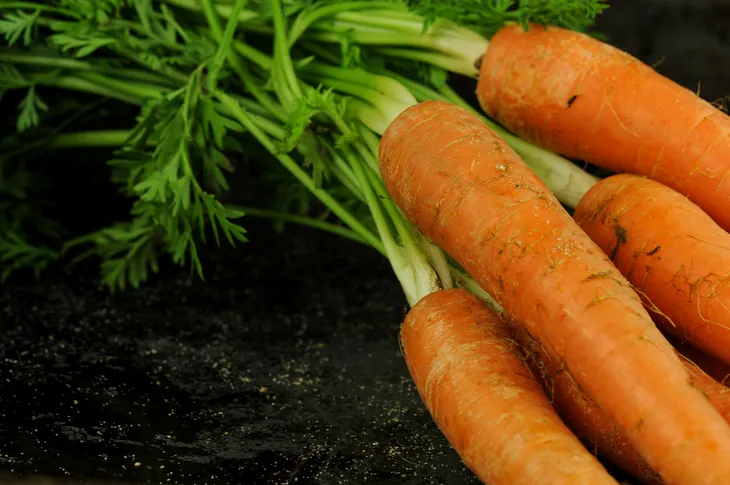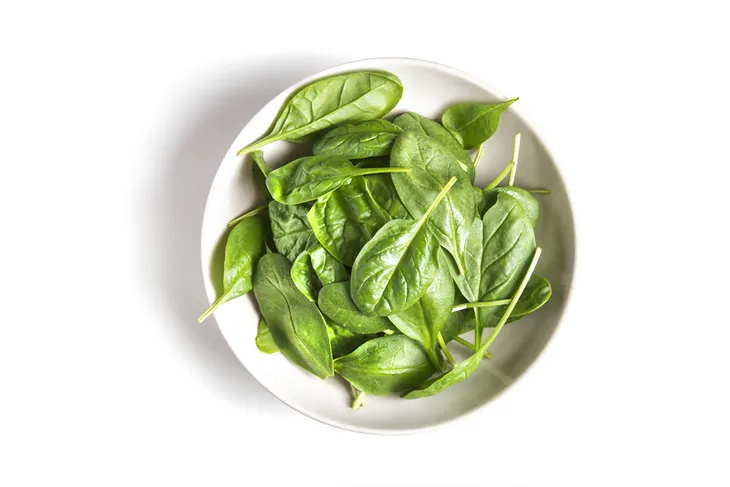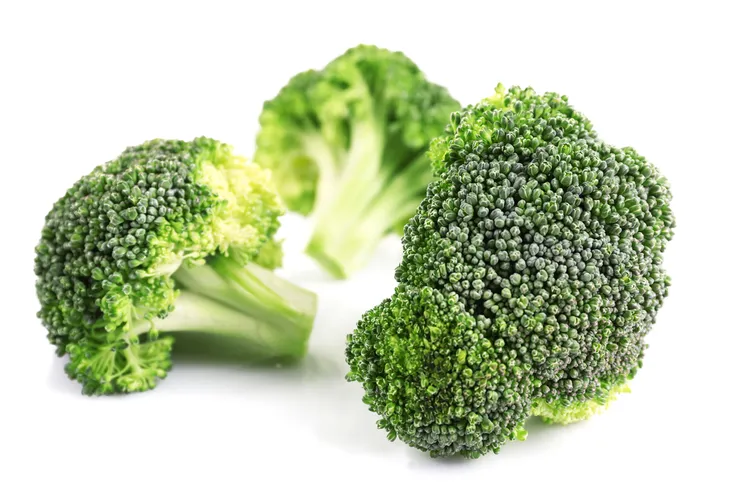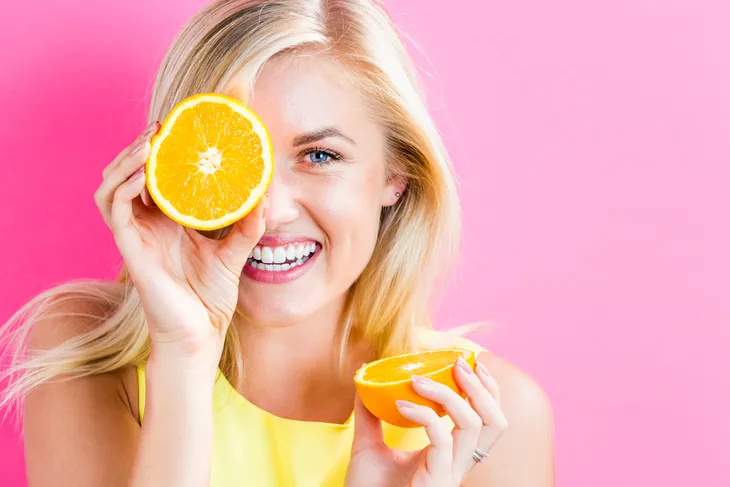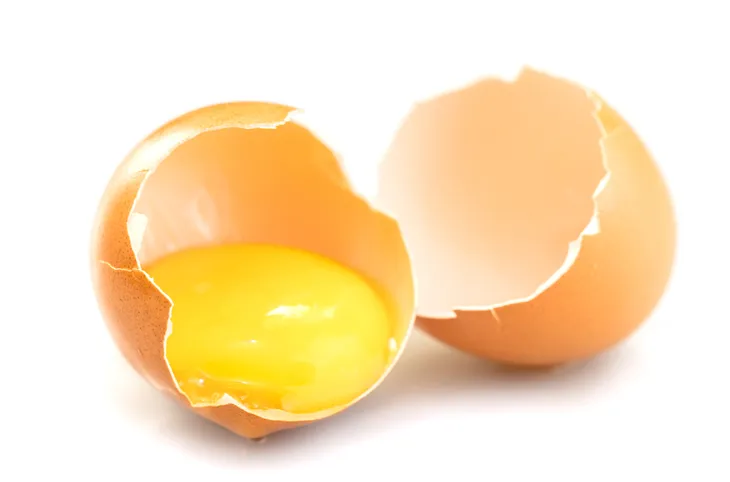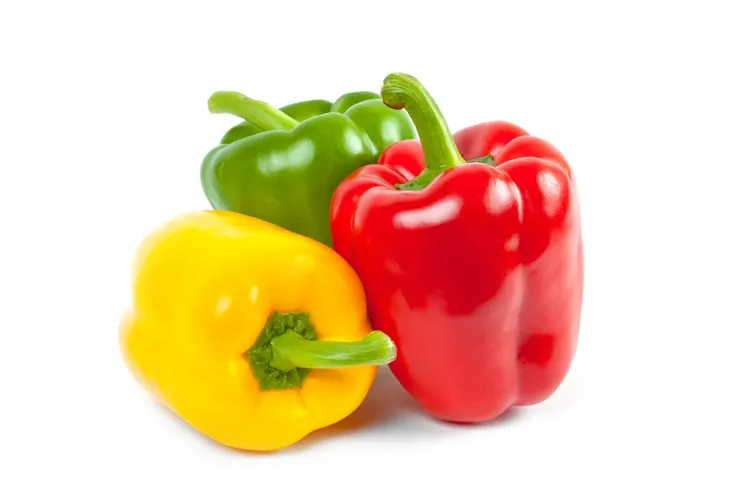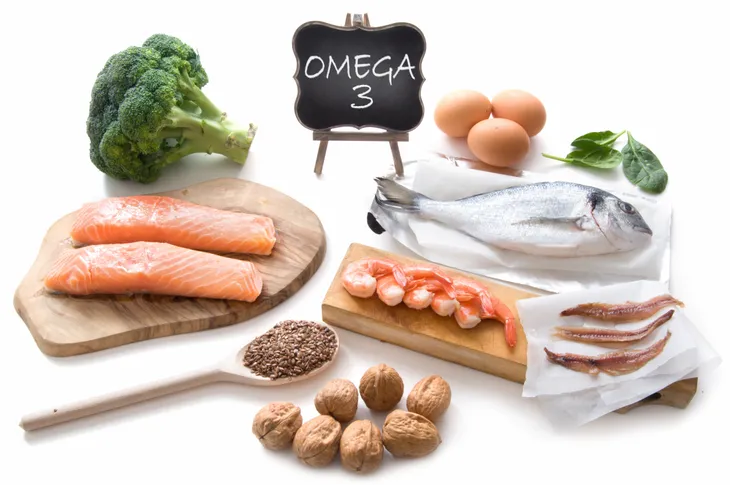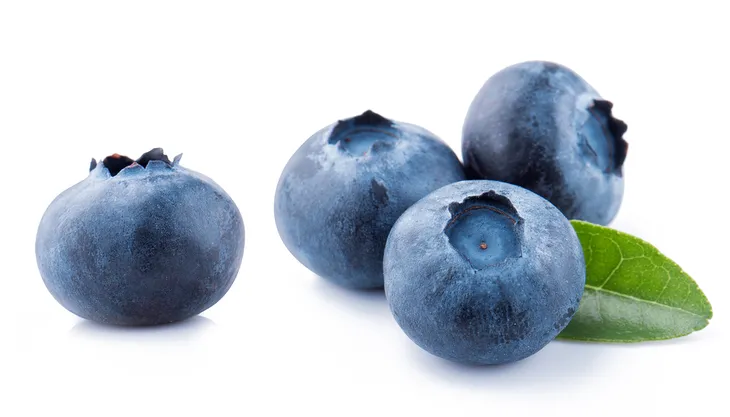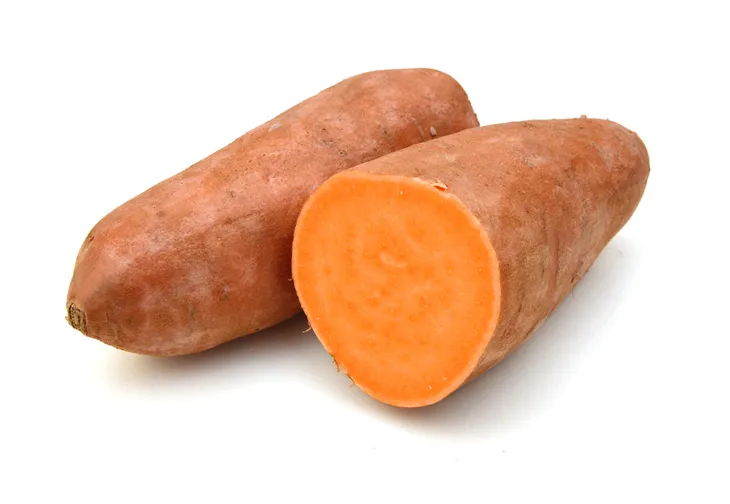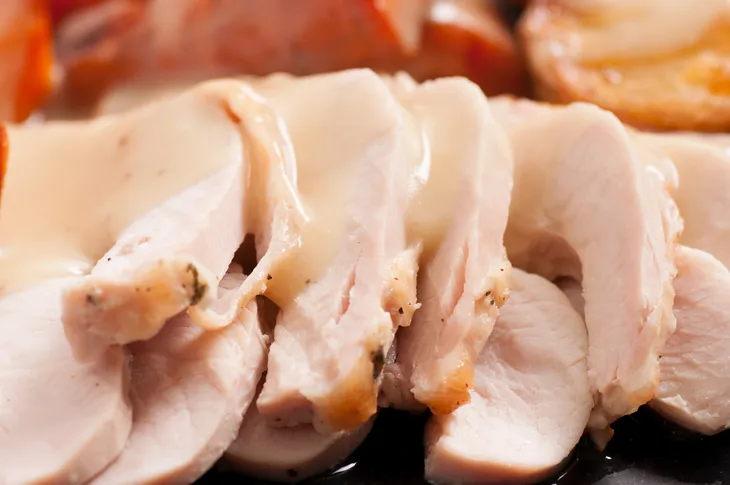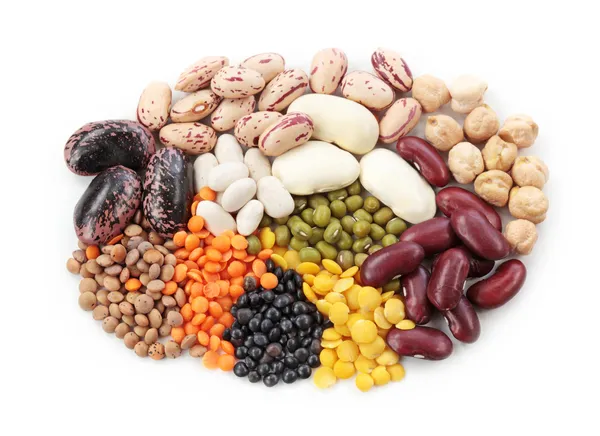You may think your eyesight is at the mercy of your genetics, and there is some truth to that. However, there are ways you can protect your eyesight and even improve it, and one of those ways is by eating the right foods.
That thing your parents told you about eating carrots to see better? Turns out it’s mostly true (thanks mom!). But carrots aren’t the only beneficial food for your eyes – there are many others, so let’s take a look at 14 of them…
Want diet & nutrition content delivered straight to your inbox? Sign up for our exclusive diet & nutrition newsletter!
All Hail Kale
Okay, so maybe it’s not a food that makes everyone’s mouth water, but it sure is tempting to your eyes. Reader’s Digest explains that kale is loaded with antioxidants that fight cancer as well as vitamins, but there’s more to it that meets the eye.
The source says kale also contains eye-friendly beta-carotene, “and is the top combo of both lutein and zeaxanthin,” which are also healthy for your peepers. Just 1-cup of the greens contains 23.8-mg of these carotenoids, it adds. If you don’t like kale on its own, you can blend it into a fruit smoothie, suggests the source.
Dangling the Carrot
As we noted, carrots are most definitely good for your eyes. However, the properties of carrots are more about maintaining your vision than improving it, according to VSP.
The source explains that carrots are topped up with vitamin A, along with C and E, which “helps to reduce the impact of both cataracts and age-related macular degeneration,” it offers. While carrots are ideal for on-the-go snacking, you can also add them to salad or dip them in hummus for a bit more flavour, suggests the source.
Positive Spin on Spinach
It’s more than just a leafy green that makes Popeye stronger – it can also make your eyes stronger, according to VSP. Like it’s cousin kale and other dark, leafy greens, spinach is filled with vitamin C, beta carotene, lutein, and zeaxanthin, it explains.
These act as a “natural sunscreen” to help protect your eyes from the harmful UV rays of the sun, it adds. Raw spinach on its own is not appealing to everyone, so consider adding it to salads, steaming it, or “mix up a low-cal spinach artichoke dip and scoop it up with carrot and bell pepper sticks,” suggests the source.
Brave the Broccoli
This is another side that many people turn their noses up at, but you’ll be doing your eyes a favor if you eat it, says Reader’s Digest. Not only is broccoli rich in dietary fiber, it also contains vitamin C, it says.
More relevant to this topic, broccoli packs “eye-boosting beta-carotene,” as well as our friends lutein and zeaxanthin, it adds. If you really can’t stomach broccoli on its own, try putting it into omelettes or pasta dishes, suggests the source.
Appealing Oranges
Most people associate oranges with a way to fight off colds, and that’s because they’re known for their vitamin C content. But along with boosting your immunity, this vitamin “may help improve the health of your eye tissue,” according to Reader’s Digest.
The source accredits that finding to the Age-Related Eye Diseases Study, which was sponsored by the National Eye Institute. It adds that vitamin C may also be important to “help regenerate other important antioxidants” in the eyes, such as Vitamin E.
Crack Open an Egg
Eggs are mostly known for their protein, and that’s why they make an ideal breakfast to help power you through the day. But there’s more to eggs than protein, according to Reader’s Digest. In particular, eggs contain lutein, vitamin E, and omega 3 fatty acids, according to the source.
Ring in the Bell Peppers
VSP.com says that these colorful peppers not only reduce the risk of prostate cancer in men, they can also help you avoid age-related macular degeneration, which can lead to partial or complete blindness.
The source says a single cup of peppers contains 100-percent of the recommended daily intake of vitamins C and A. Not only that, “bell peppers are fat-free, low-calorie, and contain three grams of fiber per cup,” it adds. That makes for a pretty healthy snack that can curb your cravings.
Go Fish
Fish is delish, but it’s also great for your eyes – at least according to AllAboutVision.com. In particular, cold-water varieties such as salmon, tuna, and sardines can deliver a healthy dose of omega-3 fatty acids.
The source says the significance of omega 3’s when it comes to eyes is that it “may help protect against dry eyes, macular degeneration and even cataracts.” It’s also a great source of protein, and is low in “bad” fat. Go!
Berry Good For Eyes
Okay, we’ll let blueberries have a bit of the spotlight here too. VSP.com says although blueberries are known for antioxidants, which are linked to reducing cancer risk, they can also be beneficial for your eye health.
It cites a study by Tufts University that shows blueberries may cataracts and glaucoma, as well as heart disease. Apparently blueberries are also good for your brain, and can help increase your learning and memory capacity while fighting the effects of Alzheimer’s disease.
Get Sweet on Sweet Potatoes
This root vegetable packs beta-carotene just like carrots (yes, the word “carotene” is based on carrots), and you can consume them in a number of ways like regular potatoes – including making them into fries.
Make sweet potato fries at home by cutting them into thin strips and roasting them in the oven with some olive oil and select spices, and you’ve got yourself a tasty side or a healthy snack.
Wild for Turkey
YourSightMatters.com explains that your eyes will thank you for eating the staple food of Thanksgiving. While making a delicious sandwich from the leftovers, turkey “is also an awesome protein to use to keep your vision sharp and your eyes healthy,” says the source.
It credits this to the Vitamin B content of turkey, which helps prevent your eyes from drying out – which can lead to degeneration. The calcium and zinc content of turkey also helps keep the muscles of your eye healthy and free from damage, it adds.
Embrace Legumes
The American Academy of Ophthalmology says legumes – examples include black-eyed peas, kidney beans, lima beans, and peanuts – contain zinc, “an essential trace mineral that is found in high concentration in the eyes.”
What’s more is that zinc may help protect your eyes from the “damaging effects of light,” it adds. If you’re not big on any of the legumes we mentioned, you can also find a healthy dose of zinc in oysters, lean red meats, poultry, and more.
